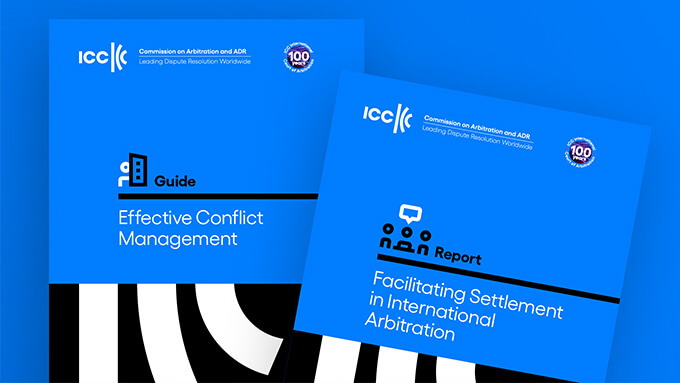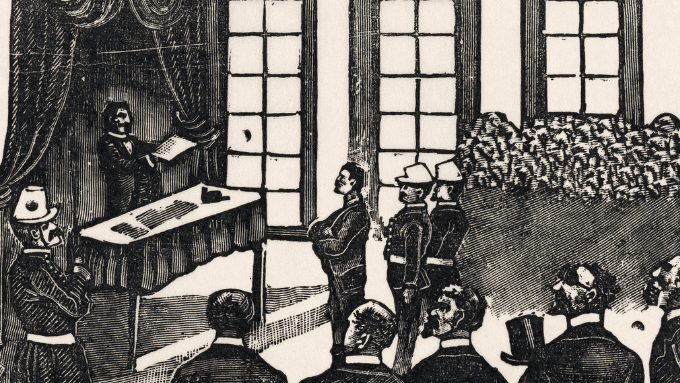Consequences of the Failure to comply with Document Production Orders in International Arbitrations
Document production requests and orders issued by the arbitral tribunal on the production of documents play an important role in international arbitrations. They are a tool to ensure that the requesting party gains access to documents, which are not in their possession, in order to provide sufficient proof to support their claims or defenses. Accordingly, failure to comply with document production orders, and the consequences of this failure, may have a bearing on the outcome of the case. In this article, the consequences of the failure to comply with document production orders will be analyzed.
In General
In international arbitrations, document production proceedings are mostly conducted under the IBA Rules on the Taking of Evidence in International Arbitration (“IBA Rules”)[1]. The IBA Rules may be adopted by the parties to be used, together with other procedural rules governing international arbitrations, whether they are institutional rules, or ad hoc rules.
Due to its international character, the parties to an international arbitration come from different legal cultures; therefore, they are familiar with different procedures on the taking of evidence. For instance, parties with a common law background would be familiar with a thorough discovery proceeding; whereas, parties with a civil law background would have a totally different understanding. Against this backdrop, the use of the IBA Rules for the taking of evidence gains more importance to find middle ground for the parties that have different legal backgrounds[2].
As a general note[3], the IBA Rules set forth basic requirements under which to request production of documents. The requested documents should be specific (Art. 3/3(a) of the IBA Rules), they should be relevant to the case and material to its outcome (Art. 3/3(b)), and they should not be in the possession, custody or control of the requesting party, nor it should be unreasonably burdensome for the requesting party to produce such documents (Art. 3/3(c)). The party receiving the request for document production may either produce the documents or make objections (Art. 3/5). If there is an objection, the arbitral tribunal may invite the parties to consult with each other to resolve the objection. If it cannot be resolved, the arbitral tribunal will rule on the objection, by considering both the request to produce documents and the objections. If the arbitral tribunal orders the production of documents, the party to whom the request is addressed is under obligation to produce the documents (Art. 3/7).
As document production has become burdensome for arbitrators, there are different opportunities for the arbitrators to ensure the effectiveness of these proceedings, such as appointing an expert to decide on the relevancy of documents, and whether the production of documents would cause an unreasonable burden, and whether they are confidential or privileged[4].
Consequences of the Failure to comply with Document Production Orders
Consequences of the failure to comply with document production orders may be at the risk of negative impression by the arbitral tribunal, the risk of adverse inferences to be drawn by the arbitral tribunal, and disadvantages in the allocation of costs for the non-complying party.
Risk of Negative Impression by the Arbitral Tribunal
Arbitration, as an alternative dispute resolution mechanism, is based on party consent, aiming to resolve disputes before an arbitral tribunal, instead of through the state courts. Within this context, the parties who have agreed contractually to resolve their disputes through arbitration are under obligation to make the necessary efforts in good faith to ensure effective dispute resolution.
The first possible consequence of the failure to comply with a document production order is that this may give a negative impression to the arbitral tribunal, who will decide the outcome of the case on its merits. Accordingly, any non-cooperative acts of the parties would, without any doubt, draw the attention of the arbitrators.
Adverse Inferences
The possibility for the arbitral tribunal to draw adverse inferences in case of the parties’ failure to produce requested documents is set forth under Art. 9/5 of the IBA Rules. Accordingly, if a party fails, without satisfactory explanation, to produce any document requested in a request to produce, to which it has not objected in due time, or fails to produce any document ordered to be produced by the arbitral tribunal, the tribunal may infer that such document would be adverse to the interests of that party.
It should be emphasized that a request from the parties is not necessary in order for the arbitral tribunal to draw adverse inferences. Accordingly, within the scope of their authority to freely assess the evidence, the arbitrators have discretion to decide on this matter.
The party against which adverse inferences may be drawn should be given an opportunity to object to the request, as a simple application of the rights of defense. As the adverse inference is based on the reversal of burden to produce documents, it is important that the burden is imposed on a party that has the ability to discharge it[5].
Adverse inferences may give rise to the conclusion that the requesting party was trying to establish proof based on a document in the other party’s possession and would be deemed to have sufficiently proven the same. In other words, even though the requesting party did not have access to, nor had it been able to make reference to the relevant document within the scope of the document production requests, it would have been deemed that they fulfilled their burden of proof. However, as this is an indirect form of evidence, adverse inference has limited evidentiary weight, and must be assessed together with the totality of the evidence[6].
Additionally, as a common observation reported amongst practitioners, arbitral tribunals are reluctant to explicitly draw adverse inferences in their arbitral awards, and omissions to produce documents influences the assessment of evidence without reference to adverse inferences in arbitral awards[7]. The reasoning of this practice may be the fear that these adverse inferences could be problematic in annulment or enforcement proceedings[8]. Considering that the annulment or the enforcement of arbitral awards depends on the relevant practices of national courts, this common observation is welcomed.
Disadvantages in the Allocation of Costs
Another possibility of sanctions regulated under the IBA Rules in the event of failure to comply with document production orders is that these failures may be taken into consideration by the arbitral tribunal in the assignment of costs of the arbitration (Art. 9/7). Accordingly, the arbitral tribunal may decide that the non-complying party should bear the cost of document production, in full or in part.
On the other hand, as the costs of document production proceedings are rather limited in comparison with the value in dispute, the legal scholars argue that the allocation of costs is not effective in influencing the parties’ conduct[9]. However, these costs could be quite high, especially when taking into consideration that the failure to submit documents causes the parties and their counsel to expend additional hours, due to the uncooperativeness of the party who fails to produce the requested documents.
Conclusion
Failure to comply with the arbitral tribunal’s orders to produce documents may not only hinder an effective arbitration, but may also cause difficulties for the parties to meet their burden of proof. Within this context, although it is rarely used, possible adverse inferences seem to be the most important sanction against the party unwilling to comply with document production orders. An allocation of cost to the disadvantage of the party not respecting the production document orders may also be effective, and it is more often used by arbitral tribunals. It should also be noted that the lack of cooperation by the parties in the production of the ordered documents would leave a negative impression on the arbitral tribunal, which may reduce the chances of success of the non-complying party in the arbitration proceedings.
[1] The IBA Rules may be accessed under: https://www.ibanet.org/Document/Default.aspx?DocumentUid=68336C49-4106-46BF-A1C6-A8F0880444DC.
[2] It is worth noting that based on the criticism that the IBA Rules adopt mostly a common law approach, as an alternative to the IBA Rules, a draft of the Inquisitorial Rules on the Taking of Evidence in International Arbitration, also named as the Prague Rules, have been drafted, to be launched by the end of 2018. For detailed information on the Prague Rules, please see our Newsletter article, “The Prague Rules on the Taking of Evidence in Arbitration,” Source: http://www.erdem-erdem.av.tr/publications/newsletter/the-prague-rules-on-the-taking-of-evidence-in-arbitration/.
[3] Detailed information about the IBA Rules may be found in our Newsletter articles, “Document Production Requests Pursuant to the IBA Rules on the Taking of Evidence in International Arbitrations – I, II” that may be accessed under http://www.erdem-erdem.av.tr/publications/law-post/document-production-requests-pursuant-to-iba-rules-on-the-taking-of-evidence-in-international-arbitration--i/, http://www.erdem-erdem.av.tr/publications/law-post/document-production-requests-pursuant-to-iba-rules-on-the-taking-of-evidence-in-international-arbitration--ii/.
[4] For further information, please see Hans van Houtte, Document Production Master and Expert’s Facilitator, in Inside the Black Box: How Arbitral Tribunals Operate and Reach Their Decisions, ASA Special Series No. 42, p. 83 et seq.
[5] Vera van Houtte, Adverse Inferences in International Arbitration, in. Institute Dossier VI, Written Evidence and Discovery in International Arbitration, s. 202 („Vera Van Houtte“). For further information on the issue of rights of defense, please see Vera van Houtte, p. 208 et seq.
[6] Vera van Houtte, p. 214.
[7] Reto Marghitola, Document Production in International Arbitration, International Arbitration Law Library, Volume 33, Kluwer Law International 2015, p. 174. Source: http://www.kluwerarbitration.com/document/kli-ka-marghitola-2015-ch09?q=%22document%20production%22.
[8] Marghitola, p. 174.
[9] Marghitola, p. 180.
All rights of this article are reserved. This article may not be used, reproduced, copied, published, distributed, or otherwise disseminated without quotation or Erdem & Erdem Law Firm's written consent. Any content created without citing the resource or Erdem & Erdem Law Firm’s written consent is regularly tracked, and legal action will be taken in case of violation.
Other Contents

Emergency arbitration addresses the need for interim protection before the arbitral tribunal is constituted in institutional arbitrations. Arbitral institutions establish short timeframes to ensure parties can obtain interim relief quickly. For example, the International Chamber of Commerce (“ICC”) requires that the emergency...

International arbitration remains the preferred mechanism for resolving complex cross-border disputes. Yet despite its advantages—neutrality, enforceability, flexibility—arbitration is frequently criticized for being too slow, too expensive, and too procedurally heavy. Often, parties proceed through hearings and...

For arbitral awards rendered in international commercial arbitration to produce legal effects in foreign jurisdictions, they must be subjected to proceedings for “recognition” and “enforcement.” This process is governed by the New York Convention as well as by the provisions of the Law on Private International Law...

Arbitrability, the determination of whether a specific subject matter can be resolved through arbitration, constitutes a fundamental aspect of arbitration within the scope of international commercial dispute resolution. This concept draws a delicate balance between party autonomy—a fundamental principle of arbitration...

The recognition, enforcement, and annulment of foreign court and arbitral awards in Türkiye are processes in which public policy emerges as one of the most critical criteria for review, both in theory and in practice. The Court of Cassation decisions determine the direction of case law regarding the scope and...

As is well known, the action for annulment of objection is a special type of lawsuit regulated under Article 67 of the Turkish Execution and Bankruptcy Law No. 2004 (“EBL”). The primary objective of this action is to nullify a debtor’s objection to execution proceedings. Despite its procedural function of facilitating...

On 16 December 2024, the London Court of International Arbitration (“LCIA”) released its third batch of challenge decisions covering the period from 22 July 2017 to 31 December 2022. The LCIA has also issued a detailed commentary that identifies key legal themes and analytical trends, offering practitioners...

The International Chamber of Commerce (“ICC”) has published its report on the dispute resolution statistics for 2023 (“Report”) , shedding light on the evolving landscape of international arbitration...

Syndicated loans undoubtedly hold a significant position among global financing models. In 2023 alone, 3,655 syndicated loans were provided to companies in the US, with their total value reaching USD 2.4 trillion...

Preliminary attachment refers to the temporary seizure of a debtor's assets to secure a creditor's claim. While it serves as a vital instrument for safeguarding the rights of creditors, it is subject to specific and stringent conditions under Turkish law to prevent any potential misuse...

One of the most important reasons for parties to choose arbitration is the opportunity to freely choose their arbitrators. This freedom granted to the parties also distinguishes arbitration from proceedings before state courts, where the parties are deprived of the power to determine the judges who will conduct the...

The 6th Civil Chamber of the Court of Cassation ruled on October 12, 2022, that national courts have jurisdiction over objections to provisional measures in international arbitration disputes...

The declaration of intent to resolve disputes through arbitration is the fundamental constituent element of an arbitration agreement. To speak of a valid arbitration agreement, the parties' intention to arbitrate must emerge in a way that leaves no room for dispute...

In the wake of the evolving dynamics of commercial transactions, the Netherlands Arbitration Institute Foundation (NAI) announced new arbitration rules . 2024 NAI Arbitration Rules are in force as of 1 March 2024 and will be applicable on proceedings filed on or after this date...

With the global shift to online activities, domain names play a crucial role in identifying businesses. It is more common than ever for a domain name to be registered that is confusingly similar to a trademark or service mark...

The ICC Commission on Arbitration and ADR (“Commission”) published a new guide and report with the aim to increase awareness on alternative dispute resolution (“ADR”) mechanisms to prevent disputes and strengthen the relationship between all stakeholders.The Guide on Effective Conflict Management...

Mergers and Acquisitions (“M&A”) are restructuring of companies or assets through various types of financial transactions, such as mergers, acquisitions, purchase of assets, or management acquisitions. This Newsletter article covers M&A disputes being solved before arbitral tribunals.

In the context of arbitration practice, the principle of revision au fond means that the courts can not examine the merits of a dispute when reviewing an arbitral award. This principle is most commonly encountered in set aside and enforcement proceedings. An arbitral award is evidence of the parties’ willingness...

Under Turkish law, parties may agree on the settlement of disputes that have arisen or may arise, regarding the rights that they can freely dispose of, by arbitration. However, disputes which are not subject to the will of parties, such as the disputes relating to in rem rights of immovables, bankruptcy law...

On 4 September 2020, a research project “Does a Right to a Physical Hearing Exist in International Arbitration?” was launched by an International Council for Commercial Arbitration (“ICCA”) taskforce. Due to the Covid-19 pandemic, many arbitration hearings were held online. Many institutional rules...

Dubai International Arbitration Center amended its Arbitration Rules on 25 February 2022. The 2022 Arbitration Rules were published on 2 March 2022 and came into effect on 21 March 2022. The Rules will be applied to arbitrations that are filed after 21 March 2022; unless parties agree otherwise...

In the aftermath of the Achmea decision, controversies on intra-EU arbitrations continue. Most recently, the Paris Court of Appeal has annulled two arbitral awards rendered against Poland. Meanwhile, the Higher Regional Court of Berlin has refused to declare that an Irish investor’s ICSID claim...


Under Turkish law, the legal remedy that can be applied against arbitral awards is an annulment action. Law on International Arbitration No. 4686 (“IAL”) finds its application area in arbitration proceedings where Turkey is the place of arbitration...

It is well known that following a decision of the Court of Justice of the European Union, problems arose related to arbitration of intra-EU disputes, and particularly arbitration under the Energy Charter Treaty...

Arbitration in corporate law contains controversial elements in many respects, especially the issue of arbitrability. Even in legal systems where these disputes are considered to be arbitrable, uncertainties remain on whether an arbitration clause can be included in the articles of...





Arbitration has benifited from a great increase in the use of technology which has directly effected the conduct of proceedings. More particularly, with digitalization, the way that we conduct arbitration proceedings has been changed to reflect the current needs of parties, with an aim of increasing time...
































































